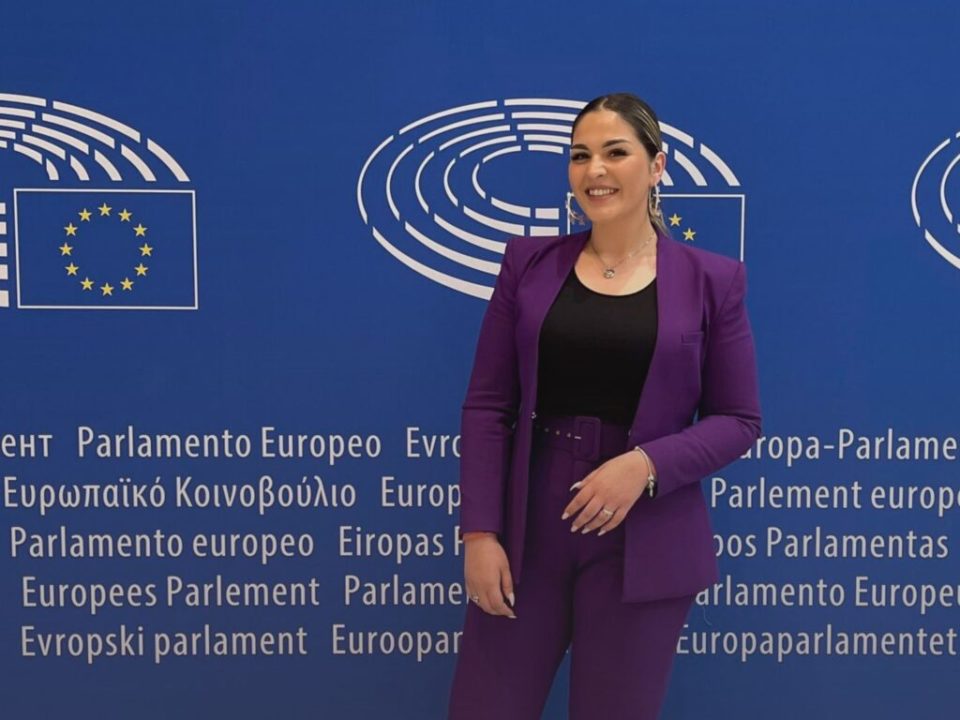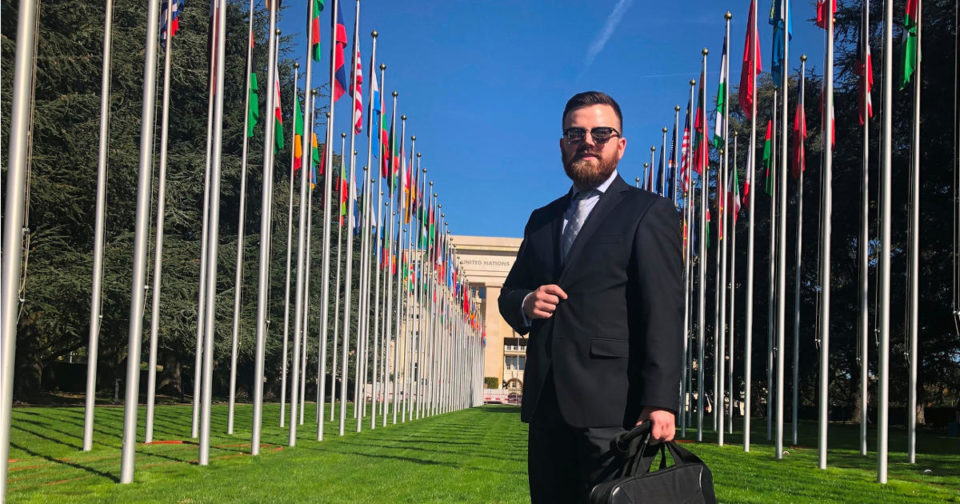
Our world is characterized by fast communication and the constant exchange of information.
This has led to the spread of influencer marketing as a social phenomenon, especially among young people. Influencing isn’t just trendy; it’s a business, albeit one that is often the target of criticism. A lesser-known form of influencing is educational influencing, where influencers provide information on various topics, try to break down myths and stigmas, and familiarize people with facts.
Azra Mehmedović, an educational influencer from Sarajevo, focuses on the topics of sexual, reproductive, and mental health, especially among young people. She explains that she works at the intersection of education, activism, digital media, and the study of psychology and psychotherapy. Through the podcast “Sex Positivitea” and other projects, she tries to break stigma and provide relevant information, creating a space for honest conversations about topics that society has taught us to keep quiet about for years.
Azra explains that she was drawn by frustration and experience to this type of influencing, but she also sees everything as a way to change society. She added that her audience’s response has been mixed, with some having only words of praise and support and others critical of her content inappropriate.
“Most of my followers are men. And that is a huge indicator for me that they also want to know more, understand better, and feel more secure in their own skin. They write to me that they have heard for the first time what consent actually means, realized that they too have the right to boundaries, decided to seek help because they recognized symptoms of anxiety or depression. Of course, women also write to me, young girls who tell me that thanks to my video, they went to the gynecologist for the first time, learned how to set boundaries, and got out of toxic relationships,” explains Azra.
She notes that sexual education does not exist in Bosnia and Herzegovina, as only a part of it is covered by biology.

“We need a comprehensive, high-quality, and empathetic approach to sexual education, tailored to age groups but honest and direct. Not education that scares and shames, but education that empowers and builds trust. This can happen, but not by itself. If we wait for the system to act on its own, we’ll be waiting forever,” says Azra.
Educational influencing is inherently interactive, and as Azra’s case shows, it encourages feedback, public discourse, and private conversations.
Dejan Lučka, a law school graduate a master’s degree in the constitutional law, is also an educational influencer. Dejan currently works as the director of the Banja Luka Center for Human Rights and is a consultant for several domestic and foreign organizations. He has managed to apply his expertise and knowledge to digital media, and he receives a variety of inquiries.
“People are most interested in questions related to property and inheritance, but also, for example, whether they are allowed to film the police. I referred people who were interested in property and inheritance to lawyers who deal with these issues, while I told those who’ve asked about filming the police that it’s allowed in public space as long as the recording doesn’t obstruct police work and is aimed at monitoring,” said Dejan.
He said he has also received questions related to the initiation of citizens’ initiatives, what can be transferred across the border, or how to send a request for access to information.

Like Azra, Dejan is of the opinion that the education system has also failed when it comes to his field.
“Instead of teaching students their rights—how to exercise, protect, and demand them—the system teaches them how to be silent, listen, and get a good grade. I’d say that the classes that touch on the subject of rights aren’t aimed at creating free-thinking people who will start civil initiatives, protest, send letters and requests to institutions, or apply the constitution and laws… but rather people who will regurgitate things from books without understanding them and be obedient cogs in the state system,” he reflected.
Creating an Informed Public
Educating citizens about their rights through digital media is a means to foster an informed public that is aware of their rights and options. While it’s important to emphasize that videos on social media cannot replace the advice of a good lawyer, this content is able to make complex topics easier to grasp.
“Legal influencers can spark interest, raise awareness, provide concrete information, and, perhaps most importantly, show that the law does not belong only to those in parliaments and courtrooms. It belongs to every citizen who wants to know and exercise their rights,” concludes Dejan.
While many influencers fill our feeds with videos discussing their consumer habits and similarly mindless topics, educational influencers are slowly but surely forging a new path.
Online activism is essential, as it is increasingly the digital sphere that offers a defense against ignorance and myths. Dejan and Azra are not just social media success stories, they are examples of profound social responsibility.






